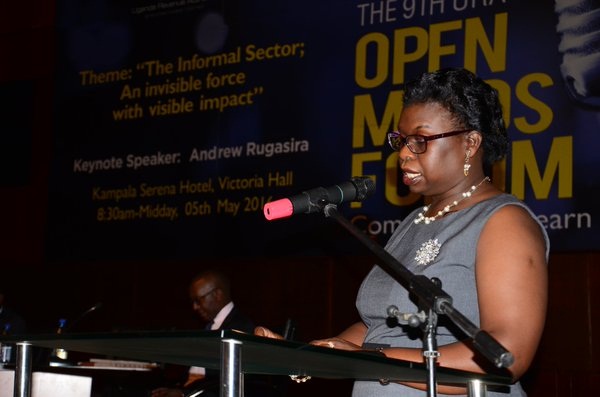
But Finance Minister, Kasaija, says the overall FY2017/18 budget is performing well
Kampala, Uganda | JULIUS BUSINGE | There is bad news coming from Uganda Revenue Authority and the Ministry of Finance Planning and Economic Development (MoFPED).
The latest data on tax collections shows that URA recorded Shs 324bn as revenue shortfall in the first half of the FY2017/18, partly attributed to low levels of economic activities, currency depreciation and the related price hikes for some commodities.
Henry Martin Saka, the assistant Commissioner for Domestic Taxes at URA told The Independent in an interview on March 02 that whereas they have always been confident about hitting targets including this financial year’s (of Shs 15tn), he was equally worried about the current wave of price increases especially of fuel and weakening shilling that could lead to an increase in the cost of doing business and negatively impact on tax collections.
Fuel prices have since last month increased by over Shs400 at most pump stations countrywide crossing the Shs 4,000 mark per litre of petrol and Shs 3500 for a litre of diesel.
The shilling has been relatively stable although has been recently experiencing slight depreciations against major foreign currencies especially the U.S dollar.
“…It is crunch time at URA and we all hope that the annual revenue target for this financial year will be reached,” Saka said.
Whereas it might be early to determine the extent to which these indicators will affect revenue collections at the end of the year, in the recent five years, they have influenced negative growth of the economy that averaged between 4-5%, which is far below the projected 6-7% growth rates of the comparable period before.
This has consequently led to increased cost of doing business, constrained demand, resulting to reduced tax revenues.
For instance, in the last financial year (2016/2017), the tax body recorded a 13% growth in revenue collection but ended up with close to Shs 500 billion revenue collection as shortfall of the Shs 13.2 trillion target.
Similarly, the year before that (2015/16), collections grew by 15.6% but with Shs 404 billion as shortfall of the Shs 11.6 trillion target.
This financial year 2017/18, the target has been set at Shs15 trillion, 14% higher than last year.
However, there are already indications that the target will not be met. On Feb.09, Finance Minister, Matia Kasaija wrote to Parliament seeking approval for borrowing Shs 736bn to fund government programmes and use part of the money, Shs 48bn to pay salaries.
Critics are opposed to the proposal arguing that it would further put pressure on interest rates in the market and compete with the private sector that is supposed to pay taxes.
They say efforts should not be put on borrowing by government but should be directed towards critical revenue generating policies that can raise more money.
But Kasaija insists that the purpose of the borrowing is to mitigate the revenue shortfalls being experienced this year.
He said revenue shortfall of Shs324bn during the first half of this financial year was on account of lower collections for Value Added Tax (Shs139.04 bn), international trade taxes (Shs53.07 bn) and income and excise taxes (Shs.144.85 bn).
“It is important to note that the borrowing will ensure that we meet the financing obligations of on-going infrastructure projects whose certificates will fall due this financial year as well as other statutory obligations such as wages,” Kasaija said on Feb.20 at Media Centre.
“I want to assure the public that in spite of the short term revenue shortfalls being experienced, the budget for FY2017/18 overall is performing well and its execution is on track as appropriated by Parliament and Government will continue to meet its obligations including salaries and wages which take the first call on the budget,” he said.
However, Parliament is yet to respond to Kasaija’s request as at the end of March 05.
 The Independent Uganda: You get the Truth we Pay the Price
The Independent Uganda: You get the Truth we Pay the Price


